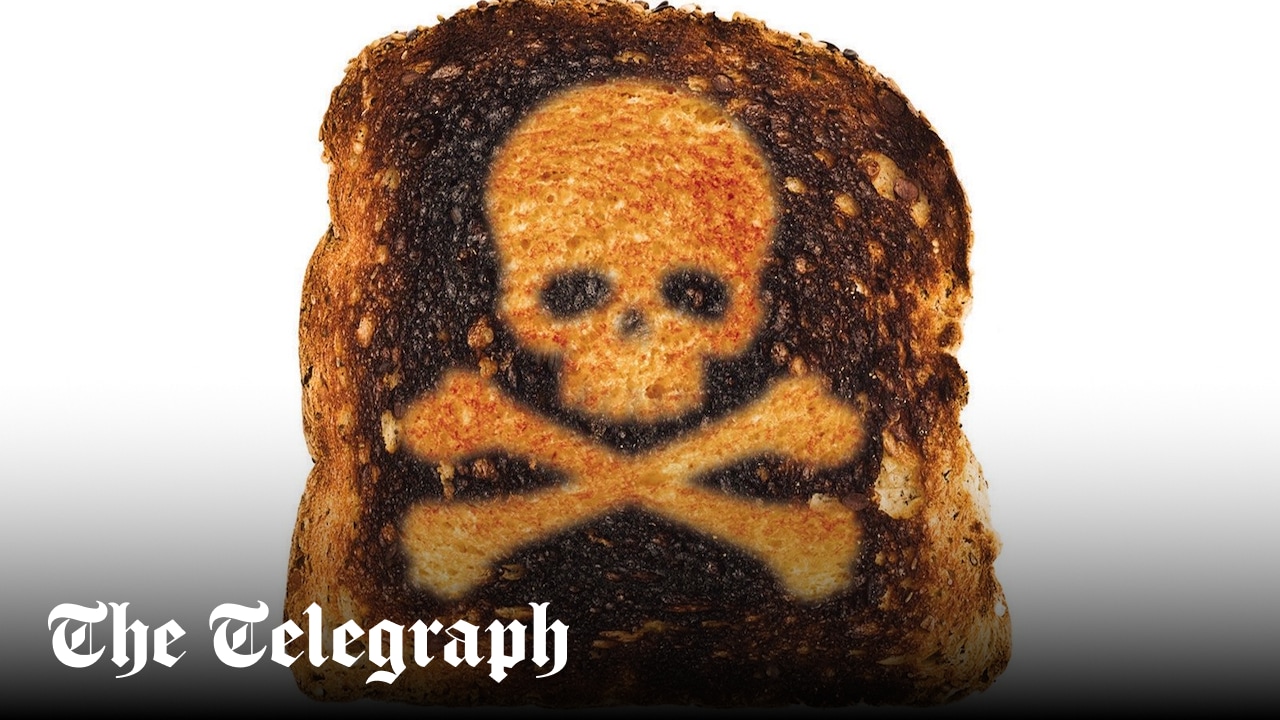
“Eating that much bread would be far worse than the acrylamide,” says Prof Jones. “The question we should ask is not, ‘does something cause cancer?’ but ‘does it cause cancer at the level we are exposed to it at’? In the case of burnt food, the best evidence we have says that it does not.”
“There are other things like smoking and alcohol that are far more risky. So if you want to reduce cancer risk, burnt food is not where you should be starting,” he adds.
However, Andrew Sharrocks, professor of molecular biology at University of Manchester is more cautious.
Studies show that damage caused by acrylamide is cumulative (meaning it can build up over time), he explains. This means that eating burnt food is “like Russian roulette,” and “the more you do this, then the worse the chances” of developing cancer, Prof Sharrocks says.
“Even small amounts of carcinogens are potentially dangerous if they cause damage in the wrong genes, maybe in cells that have already accumulated mutations over time,” he adds.
Are there other reasons to avoid burnt food?
As well as an unpleasant taste, burning toast – or cooking vegetables until they are blackened – can break down vitamins and other beneficial molecules, Prof Jones explains.
This means that burnt food “is not likely to be good for you,” says Prof Jones.
Research also shows that high exposure to acrylamide has been linked to poor brain health, reproductive problems among men and a lower birth weight among newborns.
How can you reduce your risk ?
“We always recommend keeping the amount of acrylamide in our diets as low as possible,” says Mark Willis from the Food Standards Agency. Aim for a golden yellow colour or lighter when frying, baking, toasting or roasting starchy foods and following cooking instructions for packaged foods like chips and roast potatoes, he says.
However, your overall diet is more important than acrylamide exposure when it comes to your cancer risk, says Maxine Lenza, health information manager at Cancer Research UK.
“Some foods with acrylamide are high in calories, and being overweight or obese increases the risk of 13 types of cancer,” she explains. “So, aim to eat a healthy, balanced diet, with more fruit, vegetables and wholegrains, and cut back on red and processed meats and foods high in fat, sugar and salt.”
